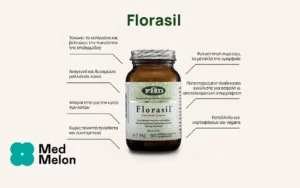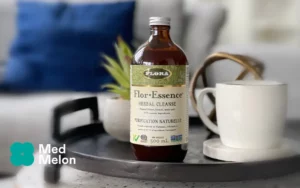Scientific Names of Alfalfa Herb:
Medicago sativa L. [Fam. Leguminosae]
Forms:
Cut and dried or powdered alfalfa herb; alfalfa herb tea; alfalfa sprouts.
Traditional Usage:
– Alcoholism
– Antifungal
– Antinflammatory
– Antioxidant
– Appetite Stimulant
– Avitaminosis A, C, E or K
– Blood Sugar Control
– Bone and Joint Problems
– Breastfeeding Problems
– Cellular Regeneration
– Chlorophyll Source
– Cleansing
– Convalescence
– Detoxifying
– Diuretic
– Endometriosis
– Hyperglycemia
– Menstrual Difficulties
– Menopausal Difficulties
– Mineral Deficiency
– Nutritive
– Premenstrual Syndrome
– Styptic
– Vitamin Deficiency
– Weight Gain Stimulant
Overview:
Alfalfa, Medicago sativa L. [Fam. Leguminosae], is widely used in human foods, animal feeds and livestock forages around the world. Alfalfa is also used in both Western and traditional Chinese medicine and use of the herb dates back thousands of years. Alfalfa is a rich source of vitamins A, C, E and K and can be used to treat avitaminosis. Because Vitamin K is critical in blood clotting, alfalfa is also used to improve clotting and treat hypoprothrombinaemic purpura. Alfalfa is also rich in the minerals calcium, potassium, phosphorus and iron. This abundance of nutrients has made alfalfa a popular tonic for treating debility of convalescence when brewed into tea. Alfalfa is also extremely rich in antioxidants, including one powerful antioxidant called tricin, and is used as a commercial source of chlorophyll and carotene. Alfalfa has a long history of folk use in Europe as a diuretic or “water pill”, although there is no scientific evidence to back its effectiveness. The manganese content of alfalfa, reported to be 45.5mg/kg, gives the herb documented hypoglycaemic action for some people with blood sugar control problems. One human study with 15 patients suffering from hyperlipidemia found that 40g of heat-treated alfalfa seeds three times a day for eight weeks significantly lowered serum cholesterol levels. Alfalfa herb and sprouts likely also have hypocholesterolemic effects stemming from their rich content of isoflavonoid-type phytoestrogens, saponins, phytosterols and protein. In the book, The Green Pharmacy, Dr. James Duke recommends alfalfa sprouts for treating endometriosis and the leaf tea as a hormone-balancing herb for stimulating milk flow in breastfeeding mothers and for alleviating menopausal problems in older women. Alfalfa has also been used traditionally as an appetite stimulant, to promote weight gain and to stop bleeding. Unsubstantiated claims include treating abnormal growths, alcoholism and bone and joint conditions.
Active Ingredients:
Alfalfa contains: 2-3% saponins; medicagenic acid; soyasapogenols A-F; hederagenin; isoflavonoids including coumestrol, biochanin A, daidzein, formononetin and genistein; organic acids including lauric, maleic, Palmitic and quinic acid; pyrrollidine-type alkaloidssugars; steroids including campesterol; cycloartenol; beta-sitosterol; alpha-spinosterol and stigmasterol; carbohydrates; vitamins A, B1, B6, B12, C, E, and K; pectin; methylesterase; and the coumarins, medicagol. Ten flavone glycosides have been isolated and identified in aerial parts of alfalfa. These included six tricin, one 3′-O-methyltricetin, and three chrysoeriol glycosides. Most of these compounds were acylated with ferulic, coumaric, or sinapic acids, with acylation on the terminal glucuronic acid.
Nutrients per 3.5 grams (1 tsp. powder) (proximates): Protein 800 mg; crude fiber 600 mg; Calories 10; chlorophyll 19mg; carbohydrates 1.3g; Vitamins: Vitamin A 1750 I/U; Vitamin K 280 mcg; Vitamin C 11mg; Vitamin E 1.1mcg; Thiamin 10mcg; Choline 1mg; Riboflavin 71mcg; Vitamin B-12 1mcg; Niacin 263mcg; Pantothenic acid 84 mcg; Biotin 4mcg; Folic acid 38mcg. Amino Acids: Lysine 29 mg; Histidine 16 mg; Arginine 39 mg; Asparatic Acid 78 mg; Threonine 37 mg; Glutamic Acid 33 mg; Glycine 41 mg; Alanine 48 mg; Valine 44 mg; Isoleucine 31 mg; Leucine 57 mg; Tyrosine 18 mg; Phenylanlanine 38 mg; Methionine 15 mg; Cystine 8mg; Trytophan 4 mg; Amide 10 mg; Purines 2 mg; Serine 85 mg. Minerals: Calcium 18mg; Phosphorus 18 mg; Potassium 112 mg; Magnesium 3.6 mg; Iron 2 mg; Manganese 0.35 mg; Selenium 3.5 mcg; Sodium 1 mg; Zinc 17.5 mcg; Iodine 7 mcg; Copper 0.02 mg; Cobalt 1.75 mcg.
Alfalfa sprout nutrients per 100 gram edible portion (proximates): Water 91.1%; Energy 29kcal or 121 kj; Protein 4g; Total lipid 0.7g; Carbohydrate, by difference 3.8g; Fiber, total dietary 2.5g; Ash 0.4g. Minerals: Calcium 32mg; Iron 1mg; Magnesium 27mg; Phosphorus 70mg; Potassium 79mg; Sodium 6mg; Zinc 0.9mg; Copper 0.2mg; Manganese 0.2mg; Selenium 0.6mcg. Vitamins: Vitamin C, total ascorbic acid 8.2mg; Thiamin 0.08mg; Riboflavin 0.13mg; Niacin 0.5mg; Pantothenic acid 0.6mg; Vitamin B-6 0.03mg; Folate, total 36mcg; Vitamin A, 155 IU; Vitamin A, RE 16mcg; Vitamin E ATE 0.02mg. Lipids: Fatty acids, total saturated 0.07g; Fatty acids, total monounsaturated 0.06g; Fatty acids, total polyunsaturated 0.4g. Amino acids: Threonine 0.13g; Isoleucine 0.14g; Leucine 0.27g; Lysine 0.21g; Methionine 0.14g; Cystine 0.16g; Phenylalanine 0.6g; Tyrosine 0.5g; Valine 0.14g; Arginine 0.9g; Histidine 0.35g; Alanine 0.55g; Aspartic acid 1.8g; Glutamic acid 2.0g; Glycine 0.5g; Proline 0.7g; and Serine 0.6g. [Information taken from The National Agriculture Library’s USDA Nutrient Database for Standard Reference, Release 14 (July 2001)]
Suggested Amount:
The daily dose of alfalfa herb is 5-10g taken directly or as an infusion three times daily. The liquid extract (1:1 in 25% alcohol) is taken with the dosage of 5-10ml three times daily. Alfalfa sprouts can also be eaten as a food, although they are not as concentrated in vitamins, minerals and other nutrients as the mature herb.
Drug Interactions:
None known.
Contraindications:
Alfalfa is contraindicated in persons suffering from lupus nephritis. People with other autoimmune diseases should stay away from alfalfa as a precautionary measure. Alfalfa seeds are contraindicated during pregnancy and lactation, while alfalfa herb is acceptable provided that doses do not exceed the amounts normally used as a food.
Side Effects:
No side effects are reported in healthy people using alfalfa herb in recommended doses. However, alfalfa seed and herb have been shown to induce a systemic lupus erythematosus-like syndrome in susceptible persons, confirmed with studies on female monkeys. This activity is associated with the herb’s content of canavanine, a non-protein amino acid that has been found to have effects on the human immune system in vitro. Alfalfa herb contains only small amounts of this constituent, while the seeds contain 8-14mg/Kg. Toxicity studies on alfalfa herb with rats and monkeys showed no evidence of toxicity; the herb did, however, lower serum lipid levels. In the USA, alfalfa is listed as GRAS (Generally Regarded As Safe) and in Europe, the Council of Europe lists it as a source of natural food flavoring category N2 and N3 (which restricts the quantity used in foods according to unspecified active principles). Allergic reactions have been reported to alfalfa tablets contaminated with other substances.
References:
Davidson, T. 2001. Alfalfa in Gale Encyclopedia of Alternative Medicine. Gale Group, 2001. http://www.gale.com. Pp. 1-3.
Duke, J. 1997: The Green Pharmacy, The Ultimate Compendium of Natural Remedies from the World’s Foremost Authority on Healing and Herbs. pp. 114; 228; 394. Rodale Press.
Foster S, and Duke JA. 1990. Elderberry in Medicinal Plants. Houghton Mifflin Co., New York, NY, p. 294.
Montanaro A, Bardana EJ Jr. 1991. Dietary amino acid-induced systemic lupus erythematosus. Rheum Dis Clin North Am. 1991 May;17(2):323-32. Review.
Newall CA, Anderson LA, and Phillipson JD. 1996. Alfalfa. In Herbal Medicines. A Guide for Health Care Professionals. The Pharmaceutical Press, London, pp. 23-24.




